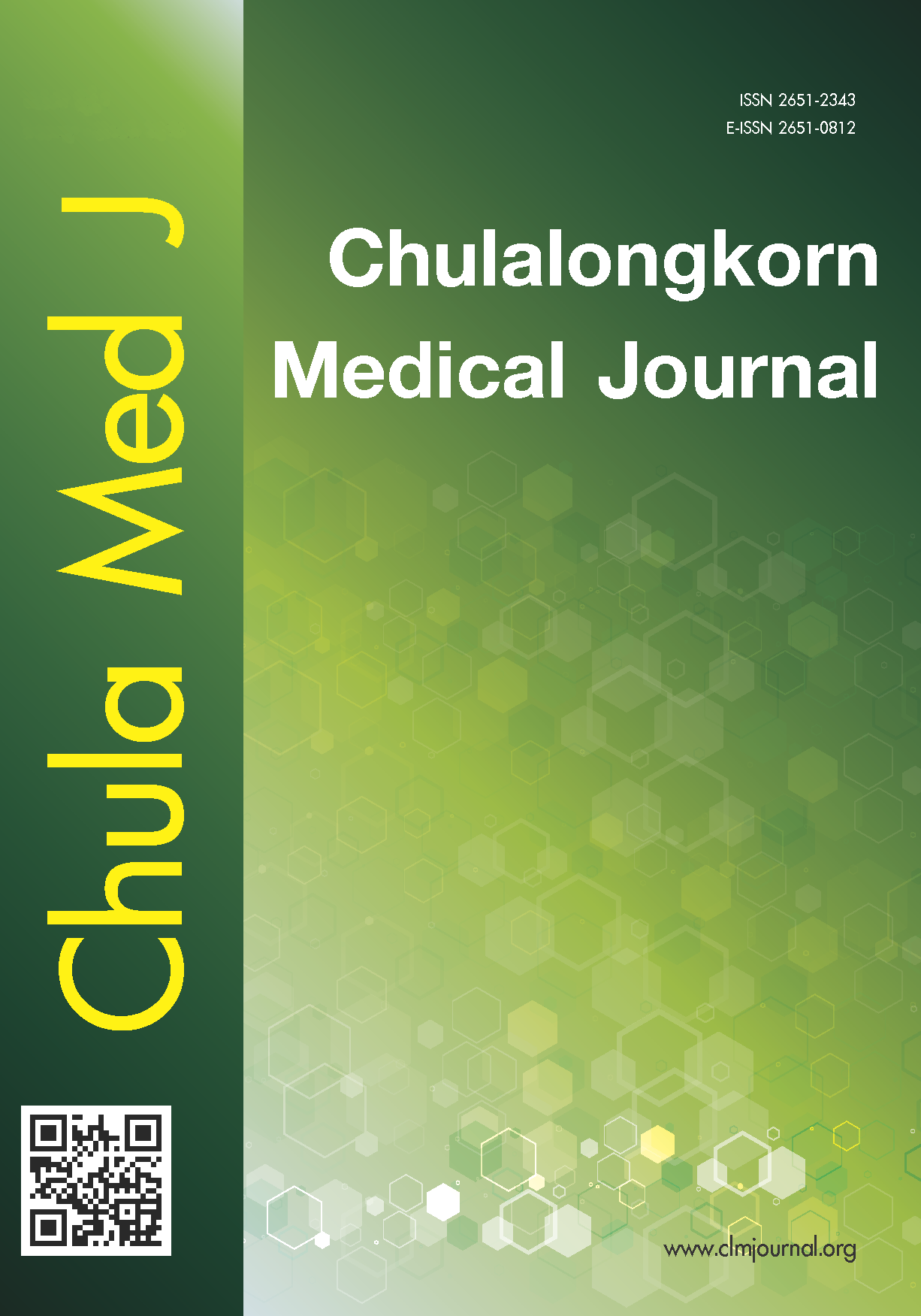Effect of preoperative cognitive dysfunction on postoperative outcomes in cardiac surgery
Main Article Content
Abstract
Background: Preoperative cognitive dysfunction (PreOCD) has not been well described as a risk factor for
poor outcomes in cardiac surgery. This study was aimed to demonstrate the effects of PreOCD on postoperative outcomes in cardiac surgery.
Methods: One hundred adult patients undergoing elective open cardiac surgery at King Chulalongkorn
Memorial Hospital were recruited. The Montreal Cognitive Assessment (MoCA) was used to evaluate cognitive
function the evening before surgery and defined a score of less than 26 as cognitive impairment. We compared postoperative outcome data between patients with PreOCD group and no PreOCD group.
Results: One patient in PreOCD group withdrew from our study. Sixty nine out of 99 patients (68.31%) had PreOCD. In the PreOCD group, the postoperative mechanical ventilation period was significantly longer (15.9 26.6 vs. 7.4
8.76 hours,
= 0.018), ICU stay was significantly longer (39.9
43.7 vs. 27.6
15.0 hours,
= 0.039), and cost of hospital stay was significantly higher (13,540
6,355 vs. 11,264
5,229 baht,
= 0.014). However, the length of hospital stay was not significantly different (10.1
3.8 vs. 9.3
4.4 days,
= 0.384).
Conclusions: We demonstrated the adverse effects of PreOCD on patients outcomes after cardiac surgery.
Identifying PreOCD may be useful in risk stratification during preoperative assessment to improve surgical
outcomes.
